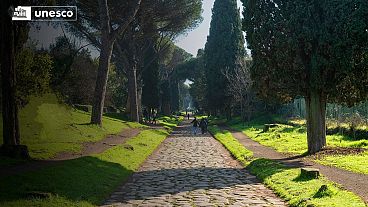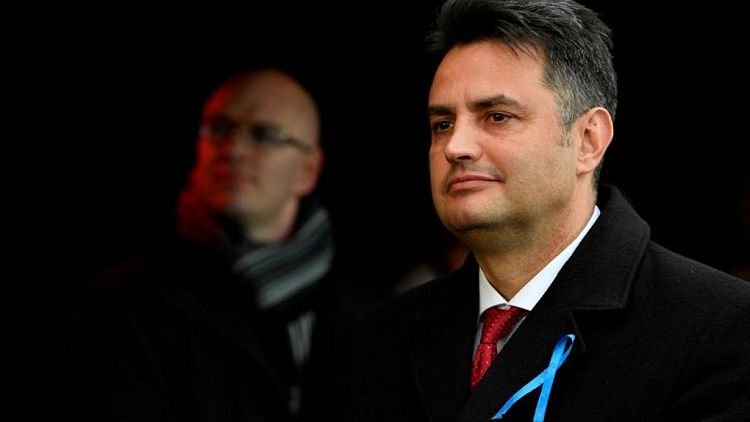By Gergely Szakacs and Krisztina Than
BUDAPEST - Hungary's opposition plans to lower the tax burden on the poor while ensuring fiscal discipline to put the country on track to adopting the euro should a six-party alliance win power at an April 3 election, its leader Peter Marki-Zay told Reuters.
For the first time since taking power in a 2010 landslide, Prime Minister Viktor Orban and his nationalist Fidesz party will face a united front of opposition parties at the ballot.
The latest polls published in December and January show a close race, but with Fidesz pulling slightly ahead of the opposition alliance.
Orban's government has ramped up spending and broad-based tax breaks that critics say are unsustainable and favour the middle class and wealthy.
Marki-Zay, 49, an independent local mayor and political outsider whose victory at last year's primaries stunned even some allies, said the opposition's focus in government would instead be on improving income for poorer Hungarians.
"There will be progressive taxation," Marki-Zay, who is currently at home isolating after a positive COVID-19 result that has interrupted his campaign, said in a interview by Zoom.
"But we will introduce this not by increasing the upper rate for the richer but by lowering it further for the poor," he said, and also proposed a targeted reduction in the value-added tax rate on basic food products.
He also said he would return Hungary to fiscal discipline, adding the country needed to strengthen its forint currency and seek a "very stable" exchange rate to join the ERM-2 system, the entry room for euro adoption, within 2-3 years.
He pledged a "very responsible budget."
An opposition government would contain the budget deficit by cutting back on unnecessary government infrastructure spending and clamping down on corruption, he said, adding that Hungary's strong GDP growth would also help make up revenue lost with the tax cuts.
"There is no need for significant measures against the wellbeing of the average Hungarian household," he added.
The budget deficit ballooned to 8% of GDP in 2020, as the pandemic shook the economy, and is expected to be at around 7.5% of GDP for 2021, largely due to increased spending in the run-up to the vote.
With inflation set to average its highest in a decade in 2022, high costs of living, low wages and pensions were among the main concerns of undecided voters based on a January survey by the liberal think tank Republikon.
OPPOSITION DIFFERENCES
The outcome of the election will decide whether the EU-member state continues on a self-declared "illiberal" path that has challenged the bloc's rules, or returns to what the opposition says would be a more centrist democracy.
The same survey by Republikon showed worries about corruption and democratic backsliding, key campaign issues for Marki-Zay and the opposition alliance, ranked lower in the eyes of undecided voters.
A core issue facing the opposition is how to push through its agenda under a constitution and laws passed by Fidesz that have cemented Orban's conservative ideology. Key public posts will be held by Orban loyalists for at least several years to come.
Marki-Zay said the leftist Democratic Coalition and formerly far-right now centre-right Jobbik agreed in principle about the need to declare some of Orban's reforms invalid.
"Others are afraid that if we don't respect every single law that was made by Fidesz, then we ourselves are destroying the rule of law in Hungary," he said. "I disagree with this strongly. There is no rule of law in Hungary."
Orban, one of Europe's longest-serving leaders, says his party's two-thirds parliamentary majority gave him a mandate to push through reforms.
Critics say the 58-year-old, who has transformed Hungary into a self-styled "illiberal state," abused that majority to entrench Fidesz's power even in case of an electoral defeat.
Holding together the diverse six-party alliance is another challenge facing Marki-Zay, who criticised some opposition lawmakers he said were "very accustomed to this system" after 12 years under Orban's rule.
"We do not have an agreement on many details, but we have an agreement on principles. It is a very difficult job, but it is possible," he said.
($1 = 314.92 forints)












